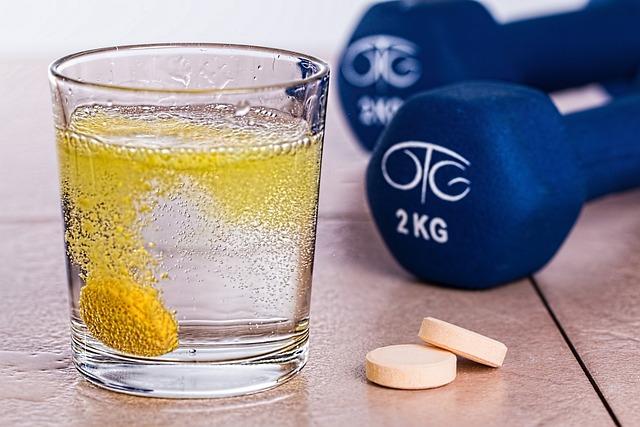In today’s fast-paced world, maintaining optimal cardiovascular health has become more important than ever. Our hearts tirelessly support us through every moment of our lives, and it’s crucial that we return the favor by providing them with the best possible care. While a balanced diet and regular exercise are foundational to heart health, supplements can offer additional support to ensure our cardiovascular system functions at its best. Navigating the vast array of available supplements can be overwhelming, especially when trying to make informed choices that align with your unique health needs. This article aims to guide you through some of the most effective supplements for supporting cardiovascular health, helping you make decisions that resonate with your lifestyle and health goals. Whether you’re looking to boost your heart’s resilience or seeking preventative measures, we are here to provide you with empathetic, evidence-based insights to nurture your heart’s well-being.
Understanding the Importance of Cardiovascular Health: Why Supplements Matter
Maintaining a healthy heart is essential for overall well-being, and supplements can play a crucial role in this journey. While a balanced diet and regular exercise are fundamental, certain nutrients can provide additional support to your cardiovascular system. Here are some of the most effective supplements to consider:
- Omega-3 Fatty Acids: Known for their anti-inflammatory properties, omega-3s help reduce triglyceride levels and may lower the risk of heart disease.
- Coenzyme Q10 (CoQ10): This antioxidant is vital for energy production in cells and supports heart muscle health, particularly beneficial for those on statin medications.
- Magnesium: Essential for maintaining normal heart rhythm, magnesium can help regulate blood pressure and reduce the risk of arrhythmias.
- Vitamin D: Often linked to heart health, adequate levels of vitamin D can contribute to better cardiovascular outcomes.
- L-Carnitine: Aids in the transportation of fatty acids into the mitochondria, which may enhance energy production and improve heart function.
Below is a brief overview of how these supplements contribute to cardiovascular health:
| Supplement | Benefit |
|---|---|
| Omega-3 Fatty Acids | Reduces triglycerides, anti-inflammatory |
| CoQ10 | Energy production, supports heart muscle |
| Magnesium | Regulates blood pressure, heart rhythm |
| Vitamin D | Improves cardiovascular outcomes |
| L-Carnitine | Enhances energy production |
Incorporating these supplements into your daily routine, alongside a healthy lifestyle, can make a significant difference in supporting your heart health. Always consult with a healthcare provider before starting any new supplement to ensure it aligns with your individual health needs.

Key Nutrients for Heart Health: What to Look For in a Supplement
When considering supplements for heart health, it’s essential to focus on specific nutrients that have been shown to support cardiovascular function. Here’s a list of key nutrients you should look for:
- Omega-3 Fatty Acids: Known for their anti-inflammatory properties, omega-3s help reduce triglycerides and support overall heart health.
- Coenzyme Q10 (CoQ10): This antioxidant aids in energy production within heart cells and helps maintain healthy blood pressure levels.
- Magnesium: Crucial for maintaining normal heart rhythm and muscle function, magnesium can also help regulate blood pressure.
- Fiber: While primarily obtained through diet, fiber supplements can help lower cholesterol and improve heart health.
To better understand the benefits of these nutrients, consider the following table:
| Nutrient | Primary Benefit |
|---|---|
| Omega-3 Fatty Acids | Reduce triglycerides |
| CoQ10 | Boosts energy in heart cells |
| Magnesium | Regulates heart rhythm |
| Fiber | Lowers cholesterol |
By ensuring these nutrients are part of your supplement routine, you can take proactive steps towards maintaining a healthy heart. Always consult with a healthcare provider before starting any new supplement to tailor the choice to your individual health needs.

Top Heart-Healthy Supplements: Expert-Backed Choices for Optimal Support
Maintaining a healthy heart is crucial for overall well-being, and while a balanced diet and regular exercise are foundational, certain supplements can offer additional support. Here are some expert-recommended options to consider:
- Omega-3 Fatty Acids: Known for their anti-inflammatory properties, omega-3s help reduce triglyceride levels and support overall heart health. Consider fish oil supplements or algae-based alternatives for vegetarians.
- Coenzyme Q10 (CoQ10): This antioxidant is vital for energy production in cells and has been linked to improved heart function. It’s especially beneficial for those taking statins, which can deplete CoQ10 levels.
- Magnesium: Essential for maintaining a steady heartbeat and regulating blood pressure, magnesium can be found in supplements such as magnesium citrate or glycinate for better absorption.
| Supplement | Benefit | Recommended Dosage |
|---|---|---|
| Omega-3 Fatty Acids | Reduces triglycerides | 1,000 mg daily |
| Coenzyme Q10 | Boosts energy production | 100-200 mg daily |
| Magnesium | Regulates blood pressure | 200-400 mg daily |

How to Incorporate Supplements into Your Daily Routine for Maximum Benefits
- Consistency is Key: To truly benefit from cardiovascular supplements, integrating them seamlessly into your daily routine is crucial. Set a specific time each day, perhaps during breakfast or before bed, to take your supplements. This consistency helps your body adapt and utilize the nutrients more efficiently.
- Pair with Meals: Many supplements, such as Omega-3 fatty acids and Coenzyme Q10, are fat-soluble, meaning they are best absorbed when taken with meals that contain healthy fats. Consider adding avocados, nuts, or olive oil to your meal when taking these supplements for optimal absorption.
- Stay Hydrated: Supplements like fiber and certain vitamins can be better absorbed with plenty of water. Ensure you’re drinking enough fluids throughout the day to help your body process and absorb these nutrients effectively.
| Supplement | Best Time to Take | Pair With |
|---|---|---|
| Omega-3 | Morning or with Lunch | Meals with Healthy Fats |
| Coenzyme Q10 | After Lunch | Olive Oil or Nuts |
| Magnesium | Before Bed | Glass of Water |
It’s also important to listen to your body and adjust your routine as needed. If you experience any discomfort, consider altering the timing or the combination of supplements you’re taking. Consulting with a healthcare professional can provide personalized advice to ensure that you’re getting the maximum benefits from your cardiovascular health supplements.








































